- Home
- P. T. Deutermann
Trial by Fire Page 17
Trial by Fire Read online
Page 17
“XO.”
He went back into the pilothouse. It was the chief engineer on the phone.
“Go ahead, Walt.”
“Is it possible you can send a repair party to Central and find a way out for us? The passageways are full of smoke, and our normal escape route is all collapsed decks and bulkheads.”
“Um,” George said. “We no longer have organized repair parties, Walt. It’s mostly guys manning portable fire pumps. I’m estimating we have only six hundred or so men left on board, and maybe half that number are effectives.”
“Good God,” Forrest said.
Then George remembered Lieutenant McCauley, up in the forward emergency diesel compartment. “Lemme see what I can do,” George said. “You have OBAs?”
“We do, but not enough. We’ll have to share masks. My whole GQ team is in here.”
“You have the people you’ll need to bring up an engine room?”
“These are the Damage Control Central folks, XO,” Forrest said. “My main-hole snipes all had to bail out when the fire and smoke came down the uptake spaces. I have no idea of where they went or if any of them are even on board. People came topside when the main holes filled up with oil smoke. Topside wasn’t much of an improvement.”
“Got that right, Walt,” George said. “They’re probably riding around on our destroyers right now. If they were lucky. If the boiler room can make steam, can you get an engine up and running?”
“Absolutely, XO, if I have to do it by myself.”
“Okay, call me back in twenty minutes.”
“Aye, aye, sir,” Forrest said.
George contacted the forecastle detail that was monitoring the towing rig. He asked the chief to see if Lieutenant McCauley was still in forward diesel. Two minutes later he got his answer.
“Yes, sir,” the chief said. “He’s down there. Says he’s watching the load. The whole world is calling for power and he said he’s gotta make sure they don’t drag that generator off the line.”
“Get him to this phone circuit. I need to talk to him.”
J.R. came up on the circuit three minutes later. George explained what he needed. “You’ve been loose in the interior,” he said. “You know your way around. I need those guys in Central to man up an engine room, especially your boss. If you can lead them out to a sponson, even, they can get below. Number two fireroom has a boiler lit off.”
“I’ll try, XO,” J.R. said. “All the big topside fires have quieted down, but inside—well, we aren’t done yet.”
“Try your best, Mister McCauley. If you can’t get through, then you can’t get through. Don’t go killing yourself trying.”
J.R. made an impolite noise.
“What?” George asked.
“You obviously haven’t been belowdecks, XO. Think of it as a beehive—with all the honeycombs burning.”
George hesitated. Maybe he shouldn’t ask this young officer to go back into whatever hell lay belowdecks.
“Lieutenant?” he asked.
There was no answer. The lieutenant was gone. Well, good, George thought. That boy’s gonna go take care of business. Thank God.
“XO?” another talker called.
Oh, shit, George thought. What now.
32
J.R. got himself back up to one of the starboard side catwalks. It was dark, cold, and with that familiar chilly wind blowing across the flight deck, but now that wind was coming from ahead, which meant they were moving at last. He was still in his khakis, with no coat or hat. He could barely make out the front of the island in the darkness, and the only light was a menacing red glow from the midships elevator well. The flight deck itself was totally dark, with only a bunch of gray shapes aft of the island to indicate the scope of the disaster. The ship was still listing to starboard, so he had to be careful to keep to the “uphill” side of the catwalk to keep his feet dry.
Off in the distance he could see the streamers of falling flares as the Jap recon aircraft circled the task force, probably looking for Franklin. There was some anti-aircraft fire, but the Japs had learned to stay out of range until they found something worthy of an attack. He thought he could hear some Corsair engines, most likely night-fighters, who’d be out hunting snoopers. The big gray bulk of the island didn’t look right, and then he realized the ship’s mast and several antennas were draped over its uppermost levels. He jumped when one of the after catwalk guns suddenly went off.
The strangest part was that there was no one about on the flight deck. He thought he could see the dimmed red lights way up on the bridge, but there were no planes or people up on the flight deck itself. He looked over the side. Dozens of monkey-lines were draped along the starboard side, making tiny white wakes as their bitter ends trailed in the dark water below. Up ahead was the dark bulk of that heavy cruiser, pulling the invisible towing rig and a reluctant carrier in the away direction. The ship felt heavy, waterlogged no doubt. He wondered if, perversely, all that water down below was keeping her from capsizing.
Enough rubbernecking, he thought. Time to figure out how the hell I’m going to get down four decks to DC Central. That red glow rising from the elevator well told him that the fires were not out belowdecks. He leaned against the cold catwalk sides and tried to visualize the interior layout. Flight deck, gallery deck, hangar deck, second deck, third deck. From what he knew, the flight deck was a shamble of burnt wood, melted airplanes, and big holes. The gallery deck had been crushed up against the bottom of the flight deck when all that gasoline vapor blew up. The hangar deck itself was probably still an oven. The second deck was so filled with smoke that he’d had to go down to get those people out.
And yet, we’re still afloat. The hangar deck was armored, so even with 500- and 1,000-pound bombs going off right on the hangar deck, what lay beneath should have been protected. He was tired, very tired. He desperately wanted to sit down or even lie down, even if that meant doing so in a semiflooded catwalk. The ship was rolling, ever so slowly, causing sooty rainwater to spill over the edge of the flight deck. He opened his mouth to get some fresh water and then started to chase those little waterfalls as he realized how thirsty he was. It was rainwater, with a tinge of badly scorched Douglas fir. It tasted wonderful.
If I’m going to go back down below, I must find an OBA, or at least a gas mask. At some point he’d had a gas mask, but it was long gone now. He knew what kind of fires would still be burning down there: insulation, wiring, linoleum tiles in the passageways, cans and boxes in storerooms, hydraulic lines, all of them creating a noxious brew of chemical fumes. The big oil fires might be mostly out, having consumed everything in their path, but these residual fires were just as dangerous and they were consuming oxygen. Gotta find an OBA and some extra cannisters. And then: What if I do get down to Central? How the hell do I get them out of there if the passageways are filled with toxic gases? He knew there was an OBA locker in Central, but were there enough units to get everyone out?
You’re the fire marshal—you should know the answer to that, he thought. But he didn’t and his brain was sufficiently fogged that he almost didn’t care.
He lifted himself up onto the flight deck and started aft, keeping to the seaward side of the island structure, which was relatively undamaged. When he got to the after five-inch mounts he encountered small mounds, which he knew used to be human beings. The upper mount looked intact with its hatched locked back; then he realized the lower mount wasn’t there anymore. The smell of charred flesh was everywhere, despite the wind.
That upper gun mount, he thought. They kept some OBAs in the gun mounts. He found a ladder going up to the second mount. Inside, the gun machinery seemed undamaged, except that all the wiring and hydraulic hoses were melted and hanging down from the ceiling of the mount like silver and copper stalactites. The guns’ breeches were open. Then he found the DC locker, all the way at the back of the mount. He cranked it open and found a pool of rubber down at the bottom.
No joy here, he thought.
He got out of the mount and tried to remember where there were any other DC lockers. Maybe inside the island? He went back down to the flight deck and entered the island from the flight deck level hatch on the seaward side. But as he opened the hatch a great sigh of the most horrible-smelling air pushed out and he quickly slammed the hatch shut. He was not going to go in there. Period.
He turned around and went aft along the starboard edge of the flight deck. It was fully dark now and he had to thread his way through all sorts of things lying about. He deliberately didn’t look to his right where all those planes had been, fully armed and fueled. There were gray shapes out there, too; some of them were rolling around as the ship moved ahead.
He tripped and fell over an arresting wire in the darkness, which let him know he was approaching the round-down, the very back of the flight deck. Flashlight, he thought. Why in God’s name didn’t I bring my flashlight. The wind freshened suddenly, which told him he was approaching the edge. He got down on his hands and knees and crawled until he could hear waves down below. There should have been a temporary lifeline stretched across the back of the ship, but it was long gone.
He closed his eyes and recalled what it looked like back here. Straight down was the fantail, an open platform over the stern of the ship. A place where sailors congregated in the evening to have a smoke or to dump trash and garbage into the wake. There was no way to get down there from the flight deck and if he slipped and went over, he’d land on a steel deck some thirty feet below.
He was now several hundred feet behind the spot where Central was. Even if he found a way down to the fantail, he’d then have to re-enter the interior of the ship at the very back part of the hangar deck, where the machine shops were. They were well aft of where the major conflagration had been but there was no guarantee that there weren’t residual fires down there. So why are you all the way back here? He didn’t know, which made him recognize that he was semi out of it. He stepped back from the round-down and tripped over a tangle of broken arresting wires. He sat down hard and then the ship’s starboard list started him sliding toward the deck edge. The rough surface of the flight deck slowed him down but not enough and over he went, arms flailing, only to tumble into a catwalk and crack his head.
That woke him up. Central, he thought. You’re supposed to be leading men out of Central. What in God’s name are you doing back here? Looking for an OBA. Right.
He went forward in the catwalk until he was halfway back to the dark bulk of the island. He was directly downwind of the conflagration area and he began gagging. The whole area smelled like the rendering plants outside of Omaha, where the offal was cooked down into by-products. Then he looked down: the after sponson deck was right below, only there were no monkey-lines back here. He continued forward and tripped over a one-and-a-half-inch fire hose. That’ll do, he thought. He pulled the hose back to a point right over the sponson and began dropping it down until he heard the brass nozzle hit the deck below. He tied an awkward knot in the canvas-covered hose to make a loop and passed that over an antenna mount. Then he went over the edge and slid down the hose until he reached the sponson deck. The deck was wet and slippery, especially with the list, but he made his way uphill to the sponson hatch, grabbed it, and held on.
Time to think, he told himself. Where am I, and what’s inside this hatch. The hangar deck was the ship’s main deck. The next one down was called the second deck, which is where he was. Central was on the third deck. But—this was a way in, and it was below the hangar deck and well aft of where most of the fires had been. So maybe, just maybe, he’d found a route. Even as he thought that, he remembered all the smoke and toxic gases, and he still didn’t have an OBA.
So, Mister Fire Marshal: ventilate it. Open the hatch, stand aside, and let all that crap boil out of the interior until it was safe to traverse the fore and aft passageway. Go forward until you find the first companionway ladder going down to the third deck, where there shouldn’t be any smoke or fire.
Except, genius: if that were true, the guys in Central would have been out a long time ago.
Dammit. It was really hard to focus.
Do it twice, he thought. Open this hatch, ventilate it, go forward to the companionway hatch, and then ventilate that bastard. Then you’ll have a way out.
What could go wrong? he asked himself and then barked out one sharp laugh in the darkness and began undogging the hatch.
33
Gary sat on an overturned trash can watching the boiler-front gauges. The light-off blower was chugging away and the firebox sight glass showed its usual yellow-white glare. The pressure gauge showed 230 pounds, which meant that the stop valves were holding. He started to think ahead. Once they got the boiler up to pressure, they’d then need to find somewhere for all that steam to go to do some good work for Jesus. Main feed booster pumps. Main feed pumps. The big blowers. Cutting in the DA tank to start scrubbing the feedwater. The ultimate objective remained: that all-important ship’s service turbo-generator in Main Control. If they could get a crew of machinist mates into the engine room right behind them, they could then cut in the superheater tubes and eventually roll that generator, and, maybe, with any luck, one, even two main engines.
He caught a whiff of stack gas. That made him sit right up.
The big blowers were large steam turbine-driven fans that produced much larger volumes of air to maintain the higher energy combustion in the firebox. The light-off blower had been getting its air from the boiler room; smelling stack gas in the boiler room meant that the light-off blower was creating negative pressure in the fireroom. Worse, it meant that the flow of “outside” air to the boilers was coming from inside the ship, instead of down the intake plenums. He called the chief over.
“Once we get this boiler up to set point, we’re gonna have to roll the forced-draft blowers to maintain main steam pressure,” he said.
The chief nodded, as in, well, yeah.
“I’m smelling stack gas,” Gary said. “That means the intake plenums have been compromised, too. We roll the big blowers, I think we’re gonna take suction on the entire interior of the ship. What kinda air we gonna get down here?”
The chief closed his eyes for a moment. “We’re gonna get whatever fire and smoke that’s still left inside,” he said. “And that’s gonna draw fresh air through all the holes in the flight deck. And that’s gonna reflash fires that’re probably dying out right now for lack of oh-two, because they’ll be getting brand-new air and a lot of it.”
“Shit,” Gary said. Except, he thought: the boiler wouldn’t care, as long as it got great quantities of air into its firebox.
He was very tired. He tried to think of a reason not to light off the big forced-draft blowers once the required steam pressure was available. He closed his eyes for a moment to gather his thoughts. They want me to roll a ship’s service generator, and eventually, a main engine. But God help anyone who was trying to move around inside the ship when that big draft of outside air came howling through the smoldering remains of Franklin’s interior spaces. The chief nudged him, thinking he’d gone to sleep.
“Tell the bridge what the problem is,” the chief said. “Tell ’em what might happen. See if they wanna go ahead.”
Gary just looked at him for a moment. “Right,” he said. “You smell it, too?”
“Smell what?”
“Stack gas, loose in the space.”
The chief grinned. “I’m a chief boilertender, Boss,” he scoffed. “I breathe stack gas, drink fuel oil, eat fireside soot, and fart fire. A little stack gas in a main hole ain’t no biggie in the P.I.”
Gary rolled his eyes and relayed his concerns to the XO on the bridge.
“Do what you have to do, Lieutenant,” the XO told him. “We desperately need more power and a way to go faster than two knots. The whole Jap air force is out looking for us tonight. Our fighters are reporting torpedo bombers. Those evil bastards know we’ve been hurt bad, but unless they get some torpedoes into us,
they know we’re gonna get away. I’ve got Lieutenant McCauley on a mission to get some more snipes down there. Don’t let up.”
“Aye, aye, sir,” Gary said. He glanced at the pressure gauge. Four hundred pounds and rising. This was going to get really interesting. “Bleed aux steam to the big blowers,” he ordered. “Warm their steely big asses up.”
34
Acting on a hunch, J.R. stepped back away before knocking aside the final dog. That turned out to be a great idea. A small tornado of smoke, hot air, and an ugly whirlwind of soot roared out of the hatch. He had to grip the bulkhead and kneel down to keep from going with it. After a few minutes everything subsided and he was able to step through the hatch and start up the passageway. He thought it was a good sign that all those toxic gases had been under pressure. The whole ship was full of that stuff; getting it out would help everybody. There was still a light haze in the passageway, but the battle lanterns, God bless ’em, were still giving out a little light.
He came to the down hatch he needed about a hundred feet forward from where he’d started. It was a double companionway, locked down tight. He touched the hatch metal with the back of his hand. Warm, but not fire-hot. The hatch had two round scuttles, one for each of the two parallel ladders below. In normal circumstances, a man who needed to go through the hatch would open one scuttle, go down through it, turn around, and then lock it back down again without ever moving the hatch itself, thus restoring watertight integrity. There were noises now, metal against metal and then the sounds of debris rolling across the blistered decks above. But no more explosions, he thought. Be grateful for small favors. He grabbed the round operating handle of the scuttle and began to turn it counterclockwise. Almost immediately he could hear air whistling past the seals.

 The Nugget
The Nugget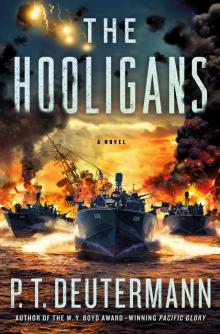 The Hooligans
The Hooligans SPIDER MOUNTAIN
SPIDER MOUNTAIN![Cold Frame [retail] Read online](http://i1.bookreadfree.com/i/03/19/cold_frame_retail_preview.jpg) Cold Frame [retail]
Cold Frame [retail] Sweepers
Sweepers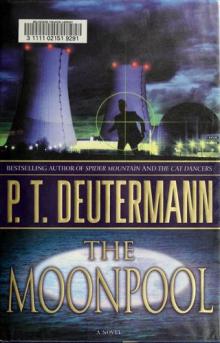 Cam - 03 - The Moonpool
Cam - 03 - The Moonpool Trial by Fire
Trial by Fire Cold Frame
Cold Frame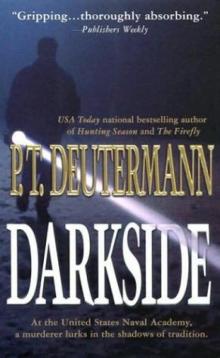 Darkside
Darkside Cam - 04 - Nightwalkers
Cam - 04 - Nightwalkers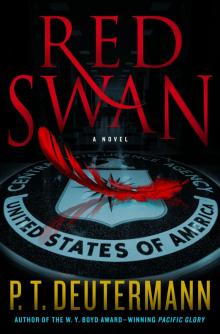 Red Swan
Red Swan The Commodore
The Commodore Hunting Season
Hunting Season The Cat Dancers
The Cat Dancers Scorpion in the Sea
Scorpion in the Sea The Edge of Honor
The Edge of Honor The Cat Dancers cr-1
The Cat Dancers cr-1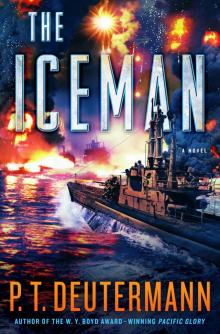 The Iceman
The Iceman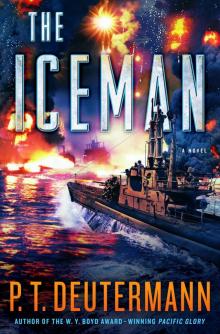 The Iceman_A Novel
The Iceman_A Novel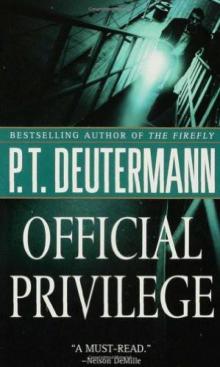 Official Privilege
Official Privilege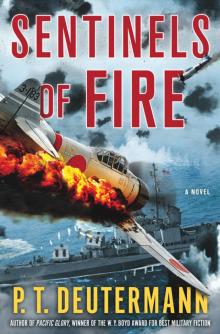 Sentinels of Fire
Sentinels of Fire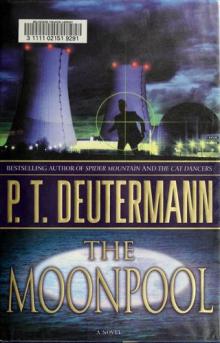 The Moonpool cr-3
The Moonpool cr-3 Nightwalkers cr-4
Nightwalkers cr-4 The Firefly
The Firefly Spider mountain cr-2
Spider mountain cr-2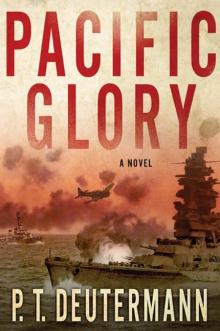 Pacific Glory
Pacific Glory The Last Man
The Last Man